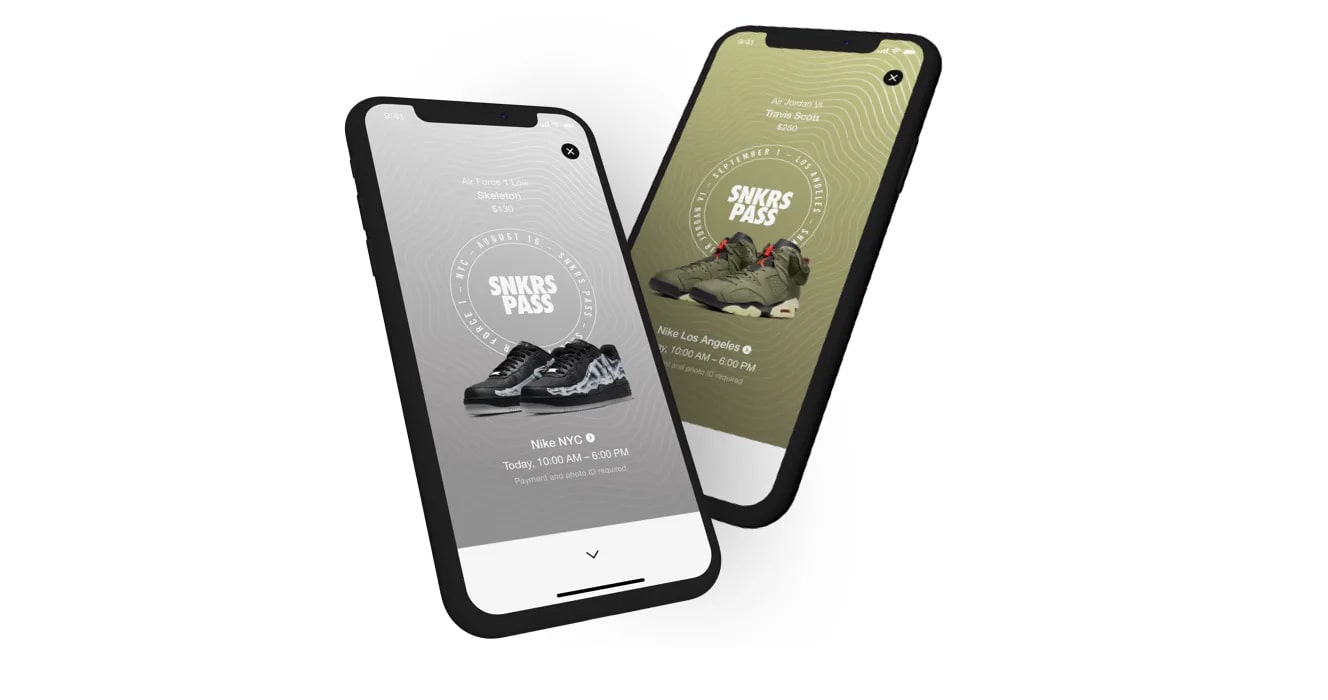At Simply Contact, we help you adapt to the future of customer experience. Whether it’s leveraging AI, enhancing personalization, or streamlining omnichannel strategies, our solutions empower you to meet evolving customer expectations with confidence. Let’s shape a CX strategy that drives satisfaction, loyalty, and growth in 2024 and beyond.

Customer Experience (CX) trends are continuously evolving and crucial in driving business growth. Studies indicate that 80% of companies have observed revenue increases by focusing on enhancing customer experiences. The reasons are obvious: satisfied customers are more likely to become repeat customers, recommend the brand to others, and ultimately contribute to the company's bottom line.
The following key trends are expected to shape Customer Experience (CX) in 2024:
- Seamless, cross-platform customer interactions.
- Enhanced data protection amid cybersecurity risks.
- AI-driven personalization of customer experiences.
- Integration of sustainable practices in business.
- Proactive support through AI chatbots.
- User-friendly self-service with smooth agent transitions.
- Incentivized loyalty programs.
- Synthetic customer personas for targeted strategies.
- Insights from customer interaction analysis.
Curious about what’s shaping customer experience in 2024? Understanding these trends is essential for staying competitive and meeting your customers’ evolving expectations.
Trend 1: Omnichannel CX – seamless interactions across platforms
CX trends in 2024 focus on seamless interactions across platforms. Having just one website or phone number is not enough in the modern world. Mobile apps, social media, email, and voice have become popular ways for customers to contact businesses.
As technology evolves, businesses need to keep up with these advancements to satisfy customers and offer a smooth, integrated experience across all platforms and channels. Companies should offer as many contact options as possible, so customers have a variety of ways to reach out.
Recognizing this, Simply Contact has embraced an omnichannel customer support approach across all our current projects. We've moved beyond relying solely on calls, understanding the importance of offering multiple touchpoints that align with customer preferences and enhance the overall experience.
While providing multiple touch points, understanding customer behaviors on different channels is also important. It helps companies access valuable insights into customers' preferences and needs. They can get a clear idea of which platform customers like to use most and why. Then, modifying marketing tactics and language to better suit various platforms will provide your consumers with a smooth omnichannel experience.
Nike exemplifies the power of omnichannel CX, using its app and website to seamlessly connect the entire customer journey, from personalized workout plans to exclusive offers.Thus, users can get workout programs according to their fitness goals and preferences.

The following table highlights how Nike utilizes multiple touchpoints to create a seamless and engaging omnichannel customer experience:
| Channels | Description | Features |
| Mobile Apps | Nike App, Nike Run Club (NRC), Nike Training Club (NTC) | Personalized shopping, workout plans, coaching, community features, exclusive content and offers |
| Website | Nike.com | Comprehensive shopping experience, product customization, detailed descriptions |
| Physical Stores | Nike House of Innovation, Nike Live Stores | Immersive shopping experiences, interactive displays, customization stations, local product curation |
| Loyalty Program | NikePlus Membership | Early access to products, exclusive content, personalized workout recommendations, integrated benefits across channels |
| Personalized Marketing | Tailored communications through email, push notifications, and app alerts | Relevant and engaging marketing messages based on customer data |
| Digital Services | Online and In-Store Integration | Accurate shoe size measurements using AR, reserve items online and pick up in-store, check store inventory online |
| Social Media & Community Engagement | Strong presence on social media platforms, community building | Consistent branding, customer engagement, promotional content, inspirational stories |
Trend 2: Ensuring customer data privacy
In an era where personalization is key, data privacy isn't just about security – it's about building trust that keeps customers coming back. As more businesses focus on personalizing customer support, the importance of safeguarding customer data becomes even more critical.
Recent stats suggest that 85% of adults worldwide wish to take greater measures to protect their online privacy. In the United States, one in four individuals faces a privacy policy agreement daily. Moreover, two-thirds of global consumers believe that tech companies have excessive control over their data.
In September 2023, a significant data breach by Microsoft AI researchers exposed 38 terabytes of confidential information, when they published open-source training data on GitHub. The disclosed information consisted of sensitive corporate data extracted from the workstations of two employees, encompassing secrets, private keys, passwords, and more than 30,000 internal messages exchanged on Microsoft Teams.
Similarly, in 2021, T-Mobile, a telecommunications provider, identified unauthorized activity within its network infrastructure. Investigation revealed a malicious user exploiting an API within T-Mobile's supply chain and stealing personal information from 37 million customer accounts. The stolen data included customers' names, Social Security numbers, and driver's license information.
Moreover, the 2023 report by Verizon’s 2023 Data Breach Investigations Report indicates a rise in phishing incident reporting. In simulated exercises, 20% of users reported encountering phishing attempts, with 11% of those who clicked on the email also reporting. The report highlights a concerning trend, with users falling victim to phishing attacks in less than 60 seconds.
All these incidents reflect the alarming risks of data leakage in today’s world. Businesses must implement stringent security protocols to safeguard customer data and maintain trust. This means using strong security methods like encryption, regularly checking for security problems, and training employees on how to stay safe online. It’s also important to use advanced tools to find and stop threats quickly.
At Simply Contact, we maintain stringent data security standards through key certifications:
- PCI DSS: Ensures that all credit, debit, and cash card transactions are processed with the highest security measures.
- ISO 27701 (GDPR): Confirms our compliance with GDPR, ensuring careful handling of personal data under the international standard for privacy information management.
- ISO 27001: Reflects our adherence to internationally recognized standards for managing information security, safeguarding sensitive information.
These certifications are not just formalities; they are critical for ensuring that the right processes are in place to protect client data. When selecting a customer support provider, it's important to pay attention to these certifications, as they offer a guarantee of secure and compliant operations.
Trend 3: Personalizing experiences with data and generative AI
In the modern world, businesses should prioritize personalized experiences using data and generative AI. Proper strategies involving intelligent AI utilization help companies stay competitive and known in the ever-growing digital landscape.
Here’s why:
- Customer expectations: Consumers now expect personalized interactions. Failure to meet these expectations can result in losing customers to competitors.
- Competitive advantage: Personalization differentiates businesses, creating memorable experiences that foster customer loyalty and increase market share.
- Data utilization: The abundance of customer data available through digital platforms allows businesses to use AI-driven analytics for targeted, relevant experiences.
- Engagement and conversion: Tailored content and offers enhance customer engagement and drive sales by aligning with individual preferences.
- Efficiency: AI-powered personalization automates and optimizes marketing and customer service, improving efficiency and resource allocation.
Businesses can predict behaviors and preferences by analyzing customer data, enabling them to deliver customized products and services. This strategic approach strengthens customer relationships and builds trust.
The trend towards AI adoption has led Servion Global Solutions to predict that AI will drive 95% of all customer interactions by 2025.
Read more
Trend 4: Advanced AI-powered chatbots
Chatbots have become another popular CX trend in 2024. Usually, a chatbot's job is to explain basic queries to the customer before a real-time conversation occurs between the customer representative and the customer. But often, chatbots irritate customers more than help them, leading to frustration and dissatisfaction with the customer service experience.
However, the scenarios have shifted with the intervention of AI generative chatbots. These AI-powered chatbots are more than just ordinary assistance. They are not robotic algorithms that are more persistent in repeating information and frustrating the customer. Instead, they actively understand customer's problems and provide a solution promptly.
A recent report by Juniper Research observes a substantial growth trajectory for chatbots. The company projects a market size of $12 billion in 2023, which is expected to soar to $72 billion by 2028. This represents an impressive 470% increase in market size over the forecast period from 2023 to 2028.
WhatsApp, the third most popular social platform, offers significant advantages for businesses with its AI-generated chatbots. Using WhatsApp chatbots can increase lead generation by over 500%. Moreover, using WhatsApp chatbots for marketing purposes can show impressive results, with a reported 28% lead-to-conversion rate.
Today, businesses can take advantage of a variety of chatbots to increase their sales, including:
- Website chatbots for engaging visitors and providing timely assistance on your business website. They efficiently handle inquiries and serve as the frontline for customer support.
- Social media chatbots offer businesses direct communication with customers on platforms like Facebook, Twitter, and Instagram. These responsive bots engage with users instantly, providing answers, recommendations, and personalized offers.
- Messaging services chatbots can reach billions of active users through apps like Facebook Messenger and WhatsApp. They lead to natural and conversational interactions and effectively connect businesses with their audience.
- Chatbots like Alexa, Siri, and Google Assistant respond to voice commands to offer various services. They provide users with weather updates, news summaries, and personalized recommendations, functioning as virtual personal assistants.
To learn more about how to use AI in client support effectively, check out our detailed guide here.
Trend 5: Sustainability for enhanced customer satisfaction
Sustainability is a growing topic in today's world where people are more conscious about saving the planet. New generations are more interested in businesses that use recycled materials and lower-emitting products to reduce their environmental impact and promote a healthier, more sustainable future.
According to the 2023 Sustainability Trend Report by Mccormickflavor, 46% of customers expect brands to take the lead in promoting sustainable change while 78% of customers worldwide want companies to prioritize sustainable food production.
Moreover, Gen Z and Millennial customers are 27% more inclined to buy from a brand that shows concern for its environmental and social impact than older generations. The numbers are increasing, highlighting the significant influence of sustainability on the purchasing decisions of younger consumers.
Trend 6: Balancing self-service and agent support
There is a reason Google and YouTube are the world's largest search engines. Nowadays, people are more likely to resolve issues themselves instead of contacting a customer service representative. Businesses can take great advantage of this and create a self-service environment to assist more customers quickly.
However, as promising as it sounds, there's a catch. Companies can create FAQ articles, how-to videos, or a comprehensive knowledge base to ensure users can easily find the necessary information.
Balancing self-service with agent-based service is another step in providing comprehensive customer support. While self-service options offer convenience and immediate access to information, they may not always resolve complex or unique issues. Therefore, it's essential to have a seamless transition from self-service to agent-based support when necessary.
Netflix is one such example of balancing self-service with agent-based services. It excels in self-service with a user-friendly interface for browsing content, managing accounts, and troubleshooting common issues. Their extensive help center offers articles, FAQs, and guides for most user queries. The company also offers live chat support for subscribers facing complex issues or needing personalized assistance.

Trend 7: Synthetic customers
In the evolving landscape of Customer Experience (CX), Synthetic Customers are emerging as a key innovation. These AI-powered virtual entities mimic real customer behaviors, preferences, and interactions, providing businesses with a scalable and data-driven approach to CX.
The primary advantage of synthetic customers is their ability to simulate real-world customer interactions, allowing businesses to gather insights, test strategies, and identify areas for improvement. This approach helps refine products, services, and marketing tactics, while also serving as a tool for predictive analytics.
Synthetic customers are applied across various industries — from e-commerce, where they evaluate website usability and recommendation systems, to finance, where they assist in fraud detection and digital banking efficiency. Their role in CX is expanding, offering businesses new ways to innovate and meet customer expectations.
Trend 8: Conversation intelligence
Conversation intelligence is a technology that analyzes customer interactions across various communication channels, such as phone calls, emails, and chat. Using artificial intelligence and natural language processing, it identifies patterns, trends, and insights from these conversations, helping businesses better understand their customers.
For example, identifying common customer pain points and frequently asked questions allows companies to develop more efficient support processes and targeted training programs for customer service representatives.
Conversation intelligence provides real-time insights, enabling companies to track problems and provide immediate solutions. Additionally, predicting issues before they arise can help businesses reach out to customers with solutions, enhancing the overall customer experience.
Conclusion
As Customer Experience (CX) continues to evolve, understanding the latest trends is essential for staying competitive and meeting your customers' needs. From AI-driven chatbots and synthetic customers to data privacy and sustainability, these trends transform how businesses interact with their customers.
Get fast answers to any remaining questions
Thank you.
Your request has been sent successfully.
Your request has been sent successfully.






